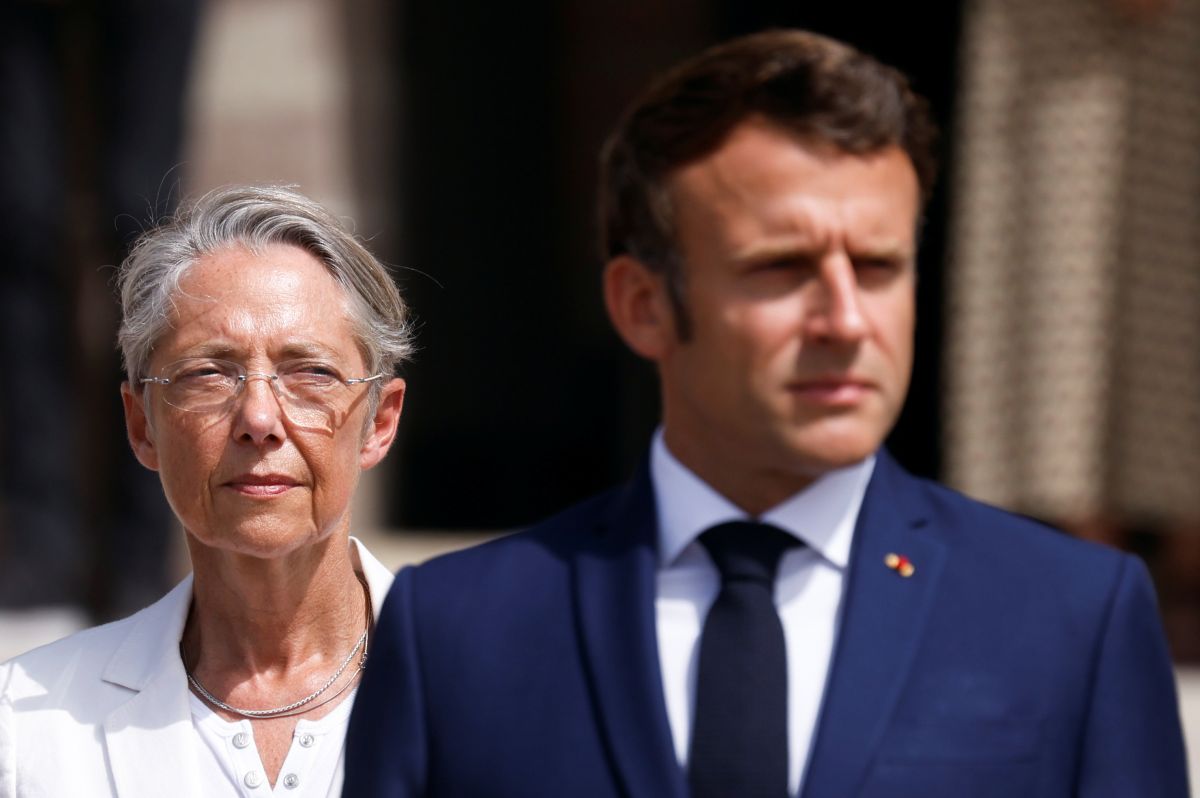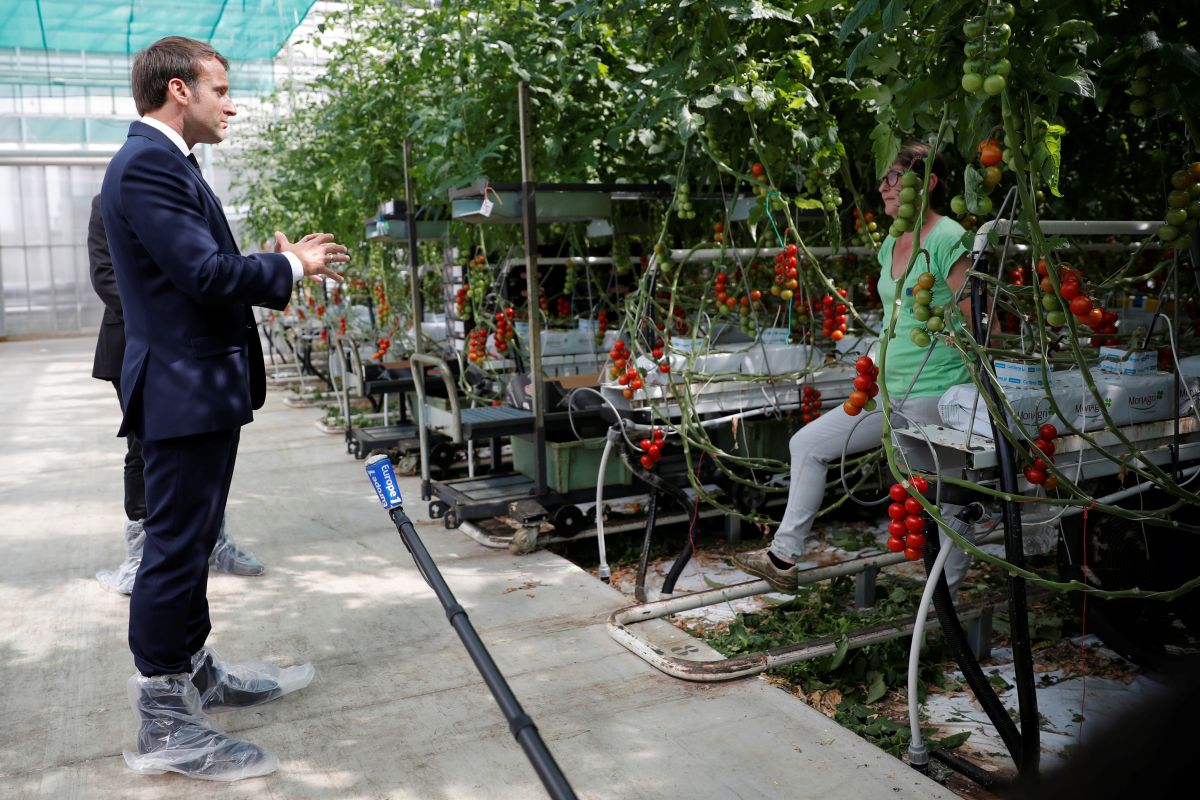France Prioritises Planning to Face the Challenges of the Ecological Transformation
The importance of the French authorities including planning for the green transformation in their priority areas increased in the last presidential campaign. Delays in the ecological transformation in France are most visible in the areas related to agriculture and renewable energy. The change in the institutional management of climate and energy policy initiated by the new government, including the direct subordination of ecological planning to Prime Minister Élisabeth Borne, is to accelerate the transformation, improve coordination of administrative activities, as well as increase the involvement of citizens and social groups distrustful of the actions of the new government.
 GONZALO FUENTES/ Reuters/ FORUM
GONZALO FUENTES/ Reuters/ FORUM
According to a report from June 2022 prepared by an independent expert body, the High Council on Climate (HCC), France’s activity in combating climate change is insufficient. It lacks appropriate strategic goals, commitment of adequate resources, and procedures for monitoring implemented processes. In France, there are currently green planning mechanisms based on the 2015 National Low-Carbon Strategy (Stratégie Nationale Bas-Carbone, SNBC) modified in 2020 (SNBC2). The document provides guidelines for the implementation of a low-emission and sustainable circular economy in all sectors and sets out the pace of reducing greenhouse gas emissions by 2050, along with short- and medium-term goals. Nevertheless, the emission targets in specific sectors of the economy are not sufficient according to HCC.
The most emitting sectors are transport (30%), agriculture (19%), and industry (19%). The HCC considered the existing reductions to be insufficient in relation to the assumptions of the EU “Fit for 55” package. France reports delays in investments in renewable energy, especially in offshore wind energy. In line with the targets adopted in the 2019 “Energy-Climate” law, the share of renewable energy in the gross final energy consumption for France in 2030 is expected to be 33%. Preliminary data for 2021 indicate a 19.3% share of RES in final consumption, which means an increase of only 0.2% compared to 2020, putting France 17th in the EU.
Ecological Planning in the Election Campaign
During Emmanuel Macron’s first term as president, environmental policy remained in the background as the priority was given to economic growth and investments in domestic industry. As a result, in October 2021, an administrative court in Paris ruled that the state was not complying with its climate obligations. Ecological planning therefore became an important topic in the presidential campaign. The Macron’s inclusion of the challenges facing France in the area of climate and energy policy was calculated to maintain and extend support from the left-wing segments of his electorate and to increase the presidential majority’s chances of winning the elections to the National Assembly. Pre-election polls showed relatively high public support for ambitious climate policy, especially among the young. In June, 10% of respondents considered climate issues more important than the cost of living crisis, while 52% of respondents considered that increasing purchasing power and accelerating ecological transformation are compatible goals. The fear of high prices due to the necessity to achieve the intended climate goals remained high, mainly among the extreme-right voters. The solutions proposed by the presidential camp, for example, to accelerate the thermal modernisation of buildings, reward the replacement of cars with low-emission ones, and introduce an electric car leasing system, were to meet the ecological requirements and material difficulties of households. The election promises were also a response to the unsatisfactory results of Macron’s first term in office in the field of climate policy.
New Government’s Policy Directions
A chance for a new opening in climate and energy policy is to come from the new government of Prime Minister Borne and institutional and organisational changes in the state administration. Two ministries responsible for ecological planning have been distinguished, the Ministry of Energy Transition and the Ministry of Ecological Transition and Cohesion of the Territories. The General Secretariat for Ecological Planning was also established as an inter-ministerial body reporting to the prime minister. The last of the mentioned institutions has the specific tasks of coordinating the development of national strategies, ensuring the integration of economic and social issues, as well as supervising the implementation of the strategy by relevant entities and ensuring it is regularly evaluated.
The new government’s goals include expanding the potential of nuclear energy, increasing solar power, building large-scale offshore wind farms, accelerating the decarbonisation of transport and increasing investments in the renovation of residential buildings (700,000 apartments per year). The starting point is defining the multi-annual budget programming for the necessary investments and setting the appropriate level of financing. The key provisions in this respect will be those in the new budget act and the act on energy and climate planning, which is to be adopted in 2023 and will define the new directions of state and administration activities until 2030. From September this year, the government plans to start consultations on the detailed assumptions of the energy and climate act.
Society in the Face of the Government’s Proposal
It is crucial for the authorities to gain broad public support for its environmental policy and to avoid protests caused by its effects. According to a survey conducted in July by OpinionWay-Square for Les Echos and Radio Classique, the government’s proposals are welcomed by citizens. The government’s overarching goal to move away from fossil fuels was supported by 71% of those polled, while 89% support the state aid programme, MaPrimeRénov’, for the thermal modernisation of buildings to reduce household usage of gas and heating oil.
The French, however, are far from unanimous on the directions and priorities of ecological planning. Almost two-thirds (65%) support building new reactors and investing in nuclear energy. Most of the supporters are in the centre-right electorate (even 87% of Macron’s voters). In turn, among left-wing voters it is only 44%. This indicates that the main areas of dispute between the left and the right are nuclear and renewable energy (mainly wind energy). The political conflict and the government’s failure to gain an absolute majority in the National Assembly provide a chance for increased activity of the opposition and attempts to influence government policy. The radical left, led by Jean-Luc Mélenchon and the Greens, is against expanding the potential of nuclear power plants, while the right-wing National Rally, led by Marine Le Pen, and the conservative Republicans oppose the construction of offshore wind farms. In addition, the increase in energy prices caused by the Russian invasion of Ukraine, the pandemic, drought, and underinvestment in the French energy sector may make citizens more sceptical about environmental policy.
Conclusions and Perspectives
The government’s environmental planning policy creates an opportunity for inter-ministerial ordering of the transformation process, as well as for increasing the efficiency and purposefulness of budget spending. To be able to afford a long-term environmental policy, the government must first face the challenge of high energy costs. Considering the situation on the commodity markets, the government, apart from investing in renewable technologies, also must financially support households, which will be a costly solution.
With regard to the energy sector, the French government will lead the pro-nuclear coalition in the EU and seek Union funds to modernise the existing infrastructure. It also can be expected that, contrary to its pro-ecological declarations, France will try to hinder what it considers the too far-reaching plans of the European Commission for the agricultural transformation, arguing that it may result in a reduction in agricultural production.
With the new balance of power in the National Assembly, the achievement of the Borne government’s goals will depend on political compromises with the opposition, between the leftists’ vision of an ambitious transformation at the expense of economic growth and the right-wing’s warning against the consequences of the transformation for the economy. With the global consequences of Russia’s aggression against Ukraine and the pandemic, reconciling far-reaching environmental reforms with economic growth may be difficult to achieve, but will remain a vital task for the French government.




_sm.jpg)
